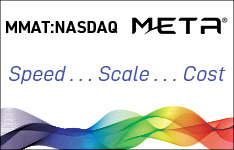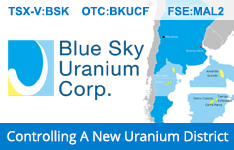Telemedicine company Reliq Health Technologies Inc. (RHT:TSX.V; RQHTF:OTCQB; A2AJTB:WKN) reported that revenue from software and services continued to increase as it saw record cash intake for the quarter ending Dec. 31, 2022.
It had revenues of CA$4.12 million for the second quarter of the 2023 fiscal year, compared to CA$2.14 million during the quarter that ended Dec. 31, 2021. For the 12 months ending Dec. 31, 2022, it had revenues of CA$12.68 million.
Software and services revenue as a percent of total revenue increased 229% to CA$1.7 million, compared to CA$524,547 in the three months ending Dec. 31, 2021.
"This is consistent with the company's previous guidance that high-margin software and services will account for the majority of its revenue in 2023 and beyond," Chief Executive Officer Lisa Crossley said.
Technical analyst Clive Maund of CliveMaund.com recommended the stock shortly after that YoY revenue news broke, and the price rose CA$0.52 to CA$0.62 last fall.
Reliq has said it expects to accelerate its growth "significantly" this year after its cash intake went up 485% to CA$8.6 million from the fiscal year 2021 to the fiscal year 2022.
Technical analyst Clive Maund of CliveMaund.com recommended the stock shortly after that YoY revenue news broke, and the price rose CA$0.52 to CA$0.62 last fall. The stock was CA$0.52 on Wednesday afternoon.
"We, therefore, stay long," Maund wrote for Streetwise Reports.
The global telehealth market Reliq serves is anticipated to reach US$380 billion by 2023, according to Research and Markets.
The pandemic "led to increased awareness about telemedicine solutions, propelled the adoption rates among patients and providers, and increased the investment activities in the market," Research and Markets said.
The Catalysts: Software and Services
To date, most of Reliq's revenues have been generated through device sales. The company expects the majority of its future revenue to come from software and services versus hardware sales.
Two other issues the company has faced recently include increasing the pace of collecting outstanding balances from clients and reducing the time it takes for patients to adhere to its iUGO platform.
"Over the last two months, the company has made significant progress on both initiatives and expects to be current on accounts receivable and to have taken over management of adherence for all new and existing clients by the end of the fiscal year (June 30, 2023)," Crossley said.
As of Jan. 1, 2023, all company account managers have been told to make collections a top priority, the company said.
Reliq's gross profits increased by 121% to CA$2.56 million in Q2 2023 from CA$1.16 million in Q1 2023, which ended Sept. 30, 2022. Gross margins for Q2 2023 were 62% because of a temporary increase in device costs. Those gross margins are expected to reach 75% in the 2023 calendar year.
Loss for the three months ending Dec. 31, 2022, decreased 97% YoY to CA$71,254 from CA$2.16 million.
'A Lot of Appetite' for Services
On Wednesday, Reliq announced it had signed 40 new skilled nursing facility clients in California, Florida, and Pennsylvania, adding more than 4,000 new patients per month to iUGO by the end of the year with an average revenue of US$65 per patient per month.
"We're rapidly expanding into the skilled nursing facility space; it's a space under a lot of pressure from Medicare and Medicaid to reduce the length of stay for patients, but also to prevent them from being readmitted," Crossley said at a recent conference. "It's very tough to accomplish both of those goals at once. So, there's a lot of appetite for our selection in that space."
Crossley has said the company services more than 100,000 on iUGO and expects to have as many as 200,000 patients on the platform by the middle of 2023.
A recent report from McKinsey & Co. and Harvard researchers said that AI adoption could result in savings of 5% to 10% of health care spending, or US$200 billion to US$360 billion annually.
Diseases the company aims to manage at home with iUGO include chronic obstructive pulmonary disease (COPD), congestive heart failure, diabetes, hypertension, and others. Patients get audible reminders to step on a scale, take their blood pressure, or prick their fingers for glucose monitoring. The information is automatically uploaded to the cloud.
iUGO draws on data from fall detection devices, medication tracking, and vitals data to flag patients at home or in facilities who need additional monitoring. It even uses artificial intelligence algorithms in its software — although it won’t chat with you.
Reliq is on the cutting edge there, as AI has yet to be widely deployed in health care. But a recent report from McKinsey & Co. and Harvard researchers said that AI adoption could result in savings of 5% to 10% of health care spending, or US$200 billion to US$360 billion annually.
"For hospitals, the savings come largely from use cases that improve clinical operations . . . and quality and safety," the report’s authors wrote. "For physician groups, the savings also mostly come from use cases that improve clinical operations."
Ownership and Share Structure
 Streetwise Ownership Overview*
Streetwise Ownership Overview*
Reliq Health Technologies Inc. (RHT:TSX.V; RQHTF:OTCQB; A2AJTB:WKN)
About 8% of Reliq’s shares are owned by insiders, including Crossley, with 1.61% or 3.22 million shares. About 0.3% of the company is owned by institutional investors, including FNB Wealth Management, with 0.02% or 0.03 million shares, according to Reuters.
Other top investors include Eugene Beukman, who owns 0.11% or 0.23 million shares, and Brian Storseth, who owns 0.07% or 0.14 million shares, Reuters said.
Crossley said 91.7% of the company is retail.
The company has 199.5 million shares outstanding, with about 196 million free-floating. It has a market cap of CA$102.32 million and trades in a 52-week range of CA$0.94 and CA$0.36.
Sign up for our FREE newsletter
Disclosures:
1) Steve Sobek wrote this article for Streetwise Reports LLC and provides services to Streetwise Reports. He or members of his household own securities of the following companies mentioned in the article: None. He or members of his household are paid by the following companies mentioned in this article: None.
2) The following companies mentioned in this article are billboard sponsors of Streetwise Reports: Reliq Health Technologies Inc. Click here for important disclosures about sponsor fees.
3) The article does not constitute investment advice. Each reader is encouraged to consult with his or her individual financial professional and any action a reader takes as a result of information presented here is his or her own responsibility. By opening this page, each reader accepts and agrees to Streetwise Reports' terms of use and full legal disclaimer. This article is not a solicitation for investment. Streetwise Reports does not render general or specific investment advice and the information on Streetwise Reports should not be considered a recommendation to buy or sell any security. Streetwise Reports does not endorse or recommend the business, products, services or securities of any company mentioned on Streetwise Reports.
4) From time to time, Streetwise Reports LLC and its directors, officers, employees or members of their families, as well as persons interviewed for articles and interviews on the site, may have a long or short position in securities mentioned. Directors, officers, employees or members of their immediate families are prohibited from making purchases and/or sales of those securities in the open market or otherwise from the time of the decision to publish an article until three business days after the publication of the article. The foregoing prohibition does not apply to articles that in substance only restate previously published company releases.
5) This article does not constitute medical advice. Officers, employees and contributors to Streetwise Reports are not licensed medical professionals. Readers should always contact their healthcare professionals for medical advice.

















































